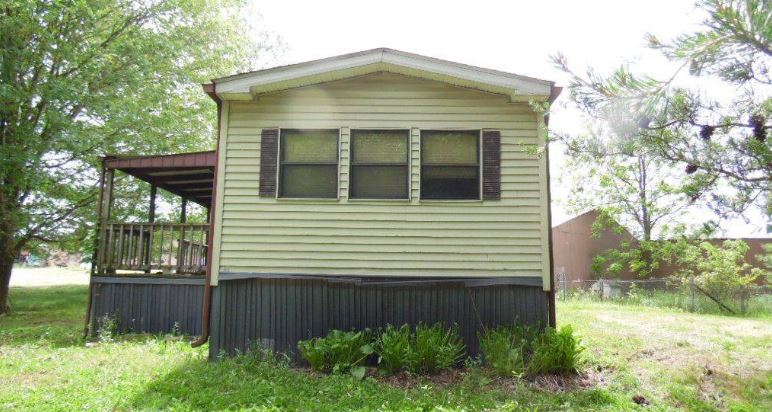
Just like buying a used home, buying a used mobile home requires careful diligence to ensure the home is well-maintained. New mobile homes come with peace-of-mind and knowing everything is in tip-top shape, but an old mobile home can sometimes be bought for a bargain. With the right eye, an old mobile home can be remodeled to look just like a house.
Second-hand single wide mobile homes have been known to list for as low as $20,000 with a double-wide listing for $40,000 on average. This varies state to state but illustrates the bargain compared to a new single wide mobile home that costs, on average, $50,000.
Purchasing an old mobile home only to find out after move-in that there are a ton of repairs to be made is a surefire way to spend more money than needed. Repairs are expensive and can lead to a more costly purchase than if a brand new mobile home was purchased outright.
We at Home Nation want to help you out. Read below to see what to look out for when buying an old mobile home so you’re well-informed about how to get the best deal.
Related: The Pros and Cons of Buying a Mobile Home
The cost of moving and installation
The first thing to consider when purchasing an old mobile home is the cost required to move it to its new location.
Transportation and installation of an old mobile home lies in the $5,000 to $10,000 range for a single section home. This cost only increases if it’s a double wide home.
This cost only covers getting the mobile home to its new location. On top of this there are installation costs one must be aware of such as linking up to the electrical and plumbing. This can run between $1,300 to $2,000. There are then additional costs for code inspection, permits, and reconnecting other services such as air conditioning.
All of this will add up and assumes that there are no issues. It’s just the cost of moving and installing the old mobile home before the remodeling takes place.
If moving isn’t an option and one’s looking to keep the used mobile home where it is, then it’s important to inspect the neighborhood. Does it allow pets? Is it safe? What are the community's rules and regulations? Are there additional maintenance and renovating costs?
The next step is to inspect the home itself and be aware of what builds are good, and what may need additional repairs. Renovating an old mobile home might be necessary to keep it up to standards.
Here are some things to look out for:
Sinking foundation
If the foundation of an old mobile home isn’t sturdy or permanent, the mobile home may sink slowly sinking into the earth over a period of time.
A sinking foundation may be due to the local mobile home movers not adhering to code. Adverse weather conditions in the area may also have led to the foundation giving away.
This isn’t a deal-breaker. Fixing the situation with an experienced old mobile home repairman may only take a few hours where they raise or level the mobile home. It’s also possible to invest in a solid foundation - giving it a peer or beam foundation on top of which it rests. Or by having the mobile home placed on top of concrete blocks.
Walls and windows leaking
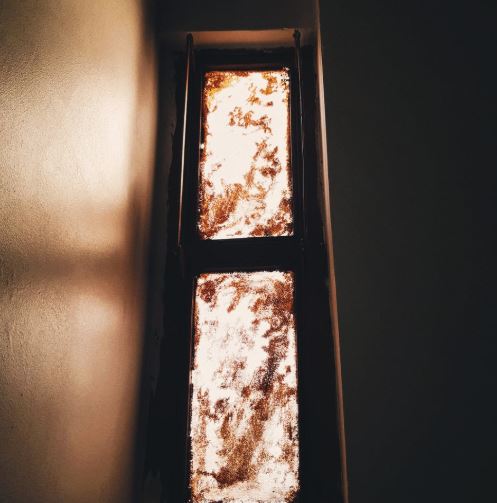
The second thing to look out for is whether windows or walls are leaking in the mobile home. Check the underside of all exterior windows to see if there’s a build-up of moisture or even mold.
A leaking roof or jammed up gutters can lead to water flowing in through small cavities as well and show up as mold inside. Keep an eye out for whether or not this infrastructure needs to be remodeled.
Repairs needed for the ceiling

Most old mobile homes will require some ceiling repairs. They are one of the areas in a mobile home that’ll take the brunt of the wear and tear, especially due to weather. Rain may slowly seep in through certain crevices and damage the interior. Cabinets may have rotten wood edges, mold and mildew may be found in certain nooks as well.
Be sure to raise or unscrew ceiling panels when carrying out an inspection of the home to take a look at the ceiling and see if it’s in good condition.
Missing insulation
Insulation damage can be common with old mobile homes.
Though the majority will still have their insulation intact, it's worth carrying out an inspection to see if the layer of insulation is still protected by a vapor barrier to keep moisture. Also check to see if there is any vapor damage. A good look at the underbelly of the mobile home should reveal a plastic sheet. Check if this sheet has been damaged with either tears or holes. If so, it'll need replacing.
Gaps in doors and windows
Doors and windows in the old mobile home should also be checked so that they seal shut and lack gaps. Gaps indicate a mobile home that is less energy efficient, since heat and cool drafts may seep out. They also allow insects and water to get in and damage the interiors, leading to even more remodeling for your old mobile home.
Floor damage
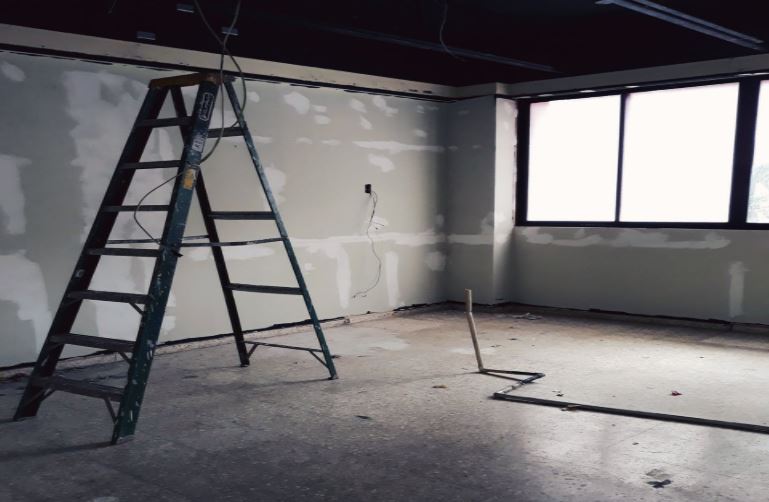
Inspecting the floor to ensure there’s no damage. Check if there are holes that have been fixed up or if soft-spots exist that will need repairs. The floor may be wavy or uneven, both indicating they need be replaced or the mobile home needs to be raised due to sinking.
Wiring
Issues with wiring in an old mobile home can be one of the most expensive things to remodel.
Outdated or unsafe wiring can be dangerous and lead to accidental electrical fires. As a result, when considering to buy an old mobile home, always have a professional come in and inspect the electrical wiring and breakers of the home to see how much renovation you need.
Homes that are older than the 1990s will most likely need an overhaul in their electricals.
If the mobile home is a make earlier than the 1980s, it should be completely rewired to meet new code. These pre-1980 mobile homes used aluminum wiring, and the connectors used for these electrical systems are considered huge fire hazards.
Most mobile homes come with HUD plates that indicate whether it has complied with HUD standards. A quick way of knowing if the mobile home contains up-to-code electricals is to look for this. However, homes made earlier than the 1980s may not have followed HUD code and need a thorough upgrade of their wiring.
Either way, check every outlet to make sure it works and have a professional come in. This one’s worth the diligence, helping you avoid dangerous accidents.
Damaged plumbing
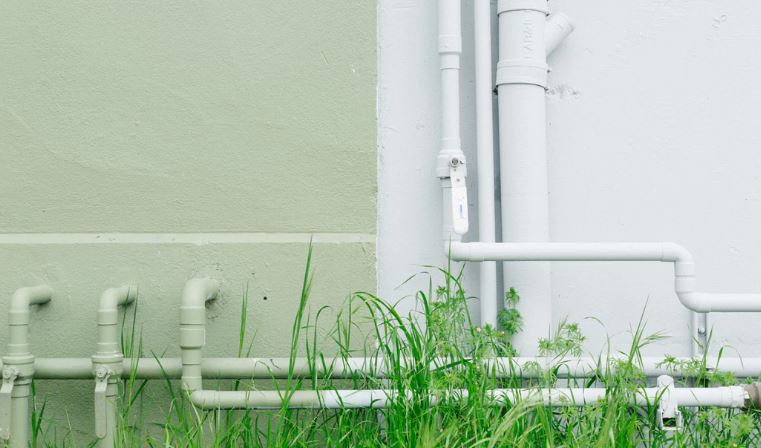
After inspecting the electricals, the next important area to inspect for problems is the plumbing system. Here, a remodeling professional is necessary and worth the money to keep your abode sanitary and comfortable.
They’ll be able to evaluate the extent of repairs already done to the mobile home’s plumbing and can quickly test if the water heater works and if any leaks are present inside or outside the mobile home. Then, they’ll tell you what next steps to take in your renovation process.
Multiple A/C systems
Finally, if the old mobile home has multiple air conditioning systems in place then there’s a chance one of them may not be working. Whether it’s window units, central HVACs, or fans, it’s a good idea to check each of them. If even one does not work properly, damage may occur to the entire system.
It’s even good to come in during a hot day to inspect the mobile home so that the A/C can be evaluated fully!
Related: The Three Types of Mobile Home Loans
Will it pass all inspections?
Ensuring an old mobile home will pass all necessary inspections for where it will be located is important, and only professionals can really ascertain if things are safe and up to code.
Professionals will be able to go beyond the checks we mentioned earlier in this article. They’ll be able to check the structural integrity of the mobile home in addition to the above.
A professional will cost money, and a typical mobile home inspector charges a few hundred dollars. This is not worth skimping out on as they can help avoid code violations later on which can end up costing north of $5,000.
Related: Zone Maps
Quick fixes
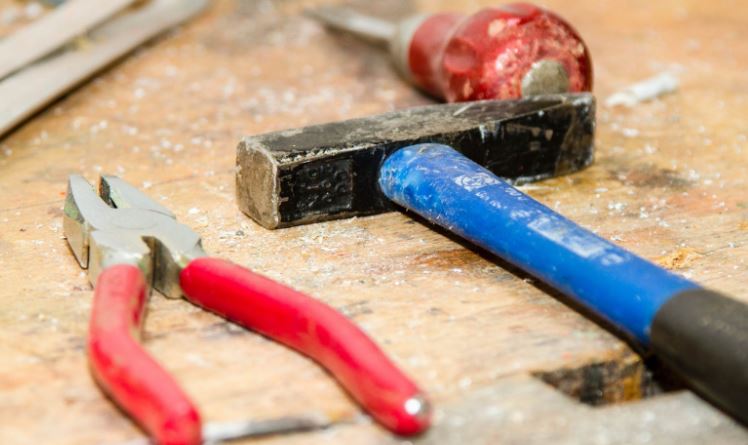
Even if a professional inspects the old mobile home and declares that things are working and up to code, there's always a chance that the owner of the old mobile home that listed it for sale may have hired some cheap handyman to get the home up and ready for inspection.
These repairs won’t be long-lasting and there’s the risk that after a year passes, many of the issues that plagued the mobile home will start to resurface quickly. Cheap, hasty renovations are worth what they cost.Always keep this in mind as a potential risk when evaluating the decision of buying old vs. new.
This can seem like a lot of items to keep in mind, so we've made life easier by listing the 'at minimum' criteria an old mobile needs to meet so there’s less of an information overload! Here are the six main things to check:
-
Check if the mobile home was HUD compliant when purchased by looking for a HUD plate.
-
Check if there’s any water damage around the home and if the underside has a protective sheet.
-
Are windows and door frames sealed when closed or are there gaps present?
-
Is the floor level?
-
Is the home level or sinking?
-
Any apparent electrical damage such as burns near outlets?
These may seem like a lot of details, but they will ensure your safety and comfort while ensuring that your old mobile home lasts a long time.
Related: Typical Road Damage
Is it better to purchase a new mobile home?
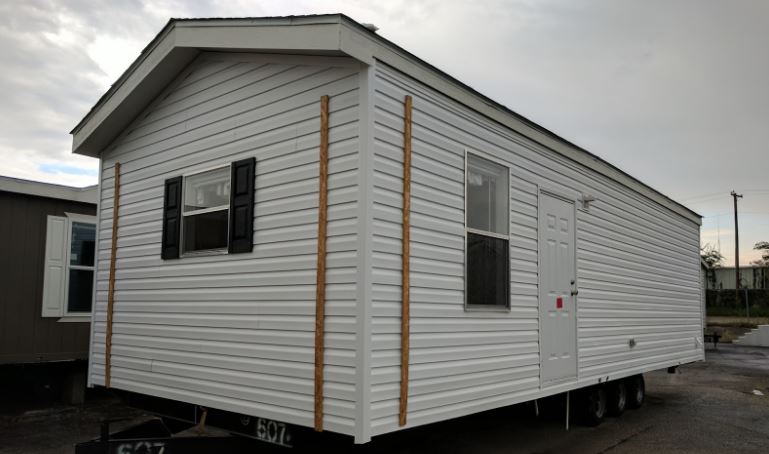
Now, does this mean an old mobile home is worth the trouble?
Our advice is always to purchase new mobile homes unless finance makes it infeasible. A new mobile home means:
-
No unforeseen repair costs: New mobile homes allow one to save on any unforeseen repair costs.
-
No remodeling necessary: They also ensure not much money needs to be thrown into remodeling the old mobile home to give it a fresh look.
-
Option to customize: New mobile homes allow one to pick and choose specific features or styles; there's an element of customization involved.
-
More energy-efficient: These new homes are also using the latest technology and come with better energy management features and energy-efficient appliances and lighting.
-
Home warranty: Most new mobile homes also come with a limited home warranty that covers any defects or structural issues that may occur in the first year of ownership.
-
Less maintenance: New mobile homes also come with less immediate maintenance costs. Early in their life, they will require less upkeep compared to an old mobile home that’s closer to end of life and will see more issues pop up.
Regardless, remember that your mobile home needs to be renovated so that it adheres to local standards. This will keep you feeling safe, comfortable, and happy.





